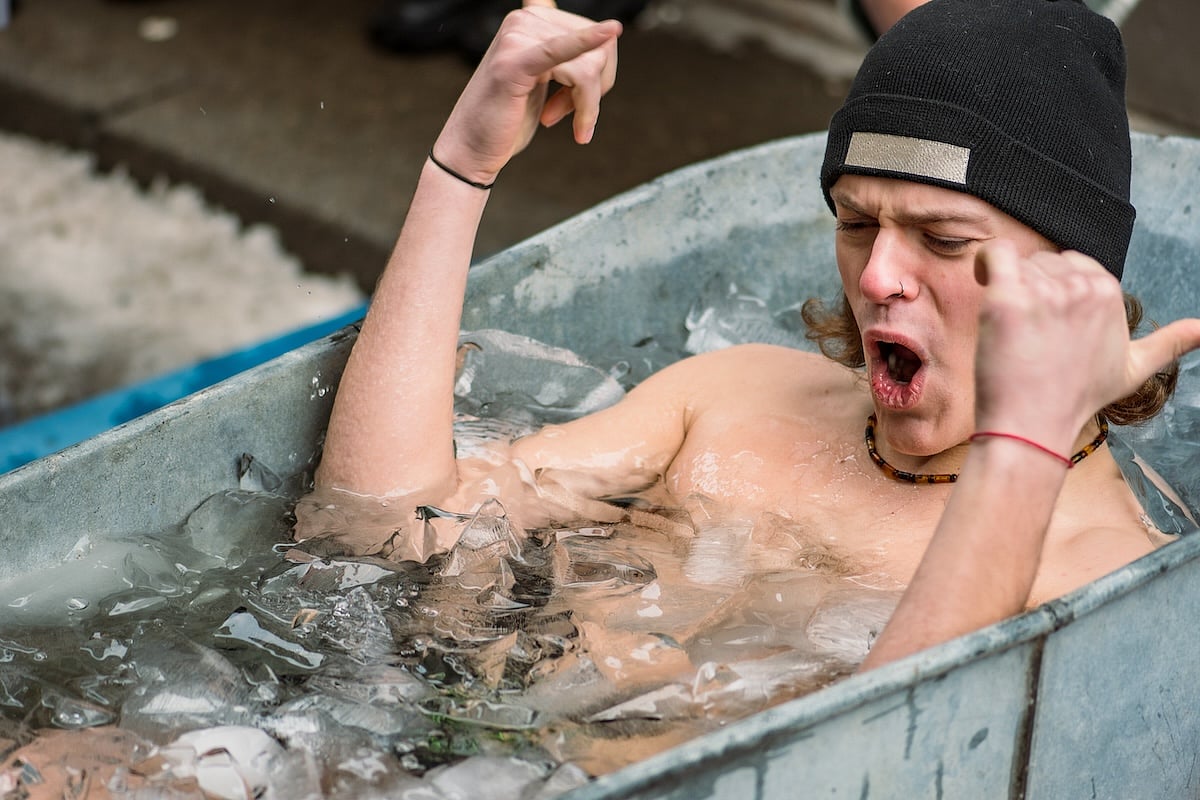Get Healthy!

- Dennis Thompson
- Posted February 3, 2025
Cold Water Plunges Might Offer Some Benefit
Cold showers or ice baths have become a trendy way to recuperate after a heavy-duty workout, but do they actually help?
A new evidence review suggests there’s some science to back up the hype.
People report lower stress, improved sleep and better quality of life following cold-water immersion, researchers reported Jan. 29 in the journal PLOS One.
However, these benefits often aren’t long-lasting, and in some cases, the body’s response might be bad for chronic health problems like heart disease, the review found.
“In this study, we noted a range of time-dependent results,” lead investigator Tara Cain, a research assistant studying health and human performance with the University of South Australia, said in a news release.
For example, “we found that cold-water immersion could reduce stress levels, but for only about 12 hours post-exposure,” Cain said.
Researchers also noted that participants who took 20-, 60- or 90-second cold showers reported slightly higher quality of life scores. “But again," Cain added, "After three months these effects had faded.”
For the review, researchers pooled data from 11 studies on cold-water immersion involving nearly 3,200 people.
Cold-water immersion involves dunking the body partially or fully in chilly water, with temperatures typically ranging from 50 to 60 degrees Fahrenheit, researchers said in background notes.
In this review, data was only included if exposure was at or above chest level and for a minimum time of 30 seconds. It included cold showers, ice baths and cold plunges.
One study found that people who took regular cold showers called in sick about 29% less often, Cain said.
Other results also suggested that cold water immersion following exercise could improve sleep, “but the data was restricted to males, so its broader application is limited,” Cain added.
Interestingly, results showed that cold water immersion can significantly increase inflammation within an hour of a person’s plunge.
“At first glance this seems contradictory, as we know that ice baths are regularly used by elite athletes to reduce inflammation and muscle soreness after exercise,” senior investigator Ben Singh, a research fellow with the University of South Australia, said in a news release.
“The immediate spike in inflammation is the body’s reaction to the cold as a stressor,” Singh explained. “It helps the body adapt and recover and is similar to how exercise causes muscle damage before making muscles stronger, which is why athletes use it despite the short-term increase.”
However, this inflammatory response also means that people with health problems like heart disease, high blood pressure and diabetes should probably talk to their doctor before slipping into an ice bath.
“People with pre-existing health conditions should take extra care if participating in cold-water immersion experiences as the initial inflammation could have detrimental health impacts,” Singh said.
Overall, more research is needed to fully understand the effects this trendy activity can have on the human body, researchers concluded.
“Whether you are an elite athlete or everyday wellness seeker – it’s important to understand the effects of what you put your body through,” Cain said.
“Right now, there isn’t enough high-quality research to say exactly who benefits most or what the ideal approach is to cold-water immersion,” Cain concluded. “More long-term studies, among more diverse populations, are needed to understand its lasting effects and practical applications.”
More information
The Cleveland Clinic has more on the benefits and dangers of cold plunges.
SOURCE: University of South Australia, news release, Jan. 30, 2025




